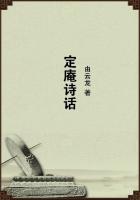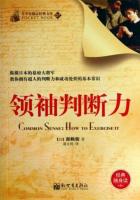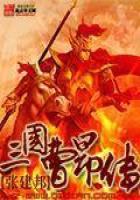Interdum vulgus rectum videt.
HOR., Ep. ii. 1, 63.
Sometimes the vulgar see and judge aright. When I travelled I took a particular delight in hearing the songs and fables that are come from father to son, and are most in vogue among the common people of the countries through which I passed; for it is impossible that anything should be universally tasted and approved by a multitude, though they are only the rabble of a nation, which hath not in it some peculiar aptness to please and gratify the mind of man. Human nature is the same in all reasonable creatures; and whatever falls in with it will meet with admirers amongst readers of all qualities and conditions. Moliere, as we are told by Monsieur Boileau, used to read all his comedies to an old woman who was his housekeeper as she sat with him at her work by the chimney-corner, and could foretell the success of his play in the theatre from the reception it met at his fireside; for he tells us the audience always followed the old woman, and never failed to laugh in the same place.
I know nothing which more shows the essential and inherent perfection of simplicity of thought, above that which I call the Gothic manner in writing, than this, that the first pleases all kinds of palates, and the latter only such as have formed to themselves a wrong artificial taste upon little fanciful authors and writers of epigram. Homer, Virgil, or Milton, so far as the language of their poems is understood, will please a reader of plain common sense, who would neither relish nor comprehend an epigram of Martial, or a poem of Cowley; so, on the contrary, an ordinary song or ballad that is the delight of the common people cannot fail to please all such readers as are not unqualified for the entertainment by their affectation of ignorance; and the reason is plain, because the same paintings of nature which recommend it to the most ordinary reader will appear beautiful to the most refined.
The old song of "Chevy-Chase" is the favourite ballad of the common people of England, and Ben Jonson used to say he had rather have been the author of it than of all his works. Sir Philip Sidney, in his discourse of Poetry, speaks of it in the following words: "Inever heard the old song of Percy and Douglas that I found not my heart more moved than with a trumpet; and yet it is sung by some blind crowder with no rougher voice than rude style, which being so evil apparelled in the dust and cobweb of that uncivil age, what would it work trimmed in the gorgeous eloquence of Pindar?" For my own part, I am so professed an admirer of this antiquated song, that I shall give my reader a critique upon it without any further apology for so doing.
The greatest modern critics have laid it down as a rule that an heroic poem should be founded upon some important precept of morality adapted to the constitution of the country in which the poet writes. Homer and Virgil have formed their plans in this view.
As Greece was a collection of many governments, who suffered very much among themselves, and gave the Persian emperor, who was their common enemy, many advantages over them by their mutual jealousies and animosities, Homer, in order to establish among them an union which was so necessary for their safety, grounds his poem upon the discords of the several Grecian princes who were engaged in a confederacy against an Asiatic prince, and the several advantages which the enemy gained by such discords. At the time the poem we are now treating of was written, the dissensions of the barons, who were then so many petty princes, ran very high, whether they quarrelled among themselves or with their neighbours, and produced unspeakable calamities to the country. The poet, to deter men from such unnatural contentions, describes a bloody battle and dreadful scene of death, occasioned by the mutual feuds which reigned in the families of an English and Scotch nobleman. That he designed this for the instruction of his poem we may learn from his four last lines, in which, after the example of the modern tragedians, he draws from it a precept for the benefit of his readers:
God save the king, and bless the land In plenty, joy, and peace;And grant henceforth that foul debate 'Twixt noblemen may cease.
The next point observed by the greatest heroic poets hath been to celebrate persons and actions which do honour to their country: thus Virgil's hero was the founder of Rome; Homer's a prince of Greece; and for this reason Valerius Flaccus and Statius, who were both Romans, might be justly derided for having chosen the expedition of the Golden Fleece and the Wars of Thebes for the subjects of their epic writings.
The poet before us has not only found out a hero in his own country, but raises the reputation of it by several beautiful incidents. The English are the first who take the field and the last who quit it.
The English bring only fifteen hundred to the battle, the Scotch two thousand. The English keep the field with fifty-three, the Scotch retire with fifty-five; all the rest on each side being slain in battle. But the most remarkable circumstance of this kind is the different manner in which the Scotch and English kings receive the news of this fight, and of the great men's deaths who commanded in it:
This news was brought to Edinburgh, Where Scotland's king did reign, That brave Earl Douglas suddenly Was with an arrow slain.
"O heavy news!" King James did say, "Scotland can witness be, I have not any captain more Of such account as he."Like tidings to King Henry came, Within as short a space, That Percy of Northumberland Was slain in Chevy-Chase.
"Now God be with him," said our king, "Sith 'twill no better be, I trust I have within my realm Five hundred as good as he.
"Yet shall not Scot nor Scotland say But I will vengeance take, And be revenged on them all For brave Lord Percy's sake."This vow full well the king performed After on Humble-down, In one day fifty knights were slain, With lords of great renown.
And of the rest of small account Did many thousands die, &c.















